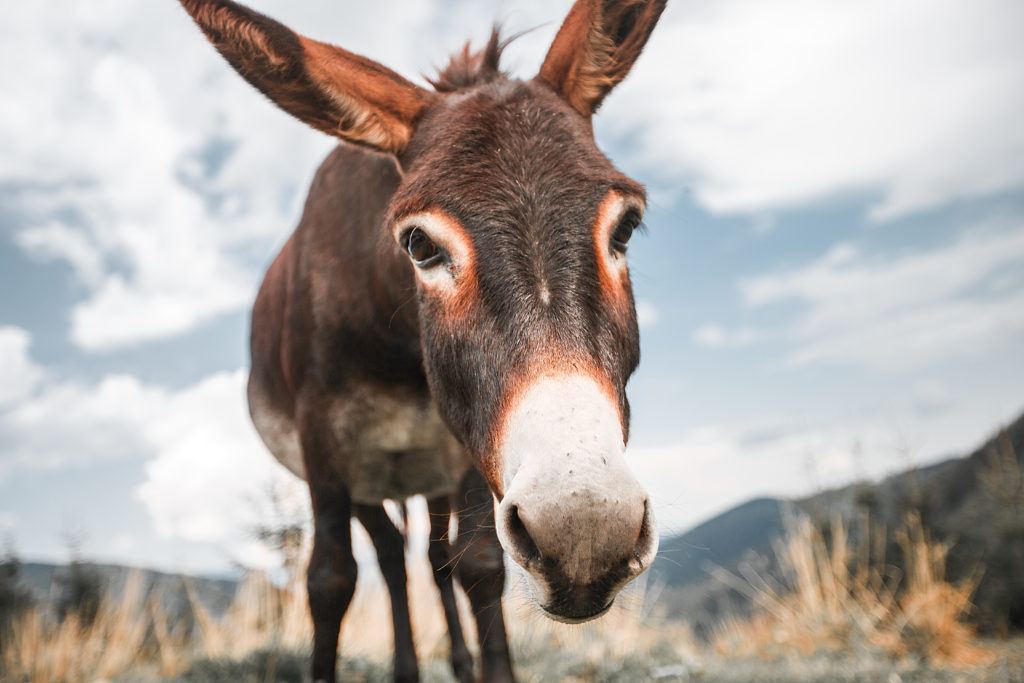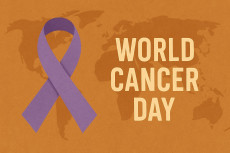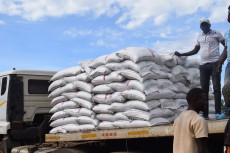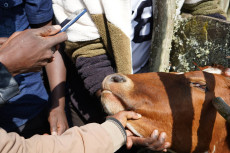- While donkeys have always been used for work, something has changed in recent years ,their skin and meat, have become highly valuable.
While donkeys have always been used for work, something has changed in recent years. Donkeys' skin and meat have become highly valuable.
They are quiet animals, known for their strength and ability to work for long hours without complaining. But behind their quiet nature is a sad reality , donkeys are among the most mistreated and forgotten animals, even though they have become very valuable in recent years.
In villages, towns, and markets across Kenya, it is normal to see donkeys carrying sacks of maize, water jerrycans, firewood, or building stones. Many families depend on them daily. They help people earn a living, especially in areas where cars and motorbikes are too expensive or where roads are too rough.
Unfortunately, most donkeys are overworked and not well taken care of. Some owners overload them, beat them, or leave them without enough food or water. They are forced to work in hot sun, rain, and even at night.
Unlike cows and goats that are often kept for their milk or meat and get better care, donkeys are mostly used for labor and little thought is given to their health or comfort.
In countries like China, donkey skin is used to make a traditional product called ejiao. This product is believed to help with blood problems, slow aging, and boost energy, though these health claims are have not been scientifically approved.
Because of this, there is now a huge market for donkey skin, and Kenya has become one of the sources. This demand has created a trade that many people were not prepared for. Slaughterhouses were set up in places like Naivasha, Baringo, and Turkana to supply donkey hides for export. Some people began selling their donkeys for quick money. A single donkey hide can be sold for thousands of shillings which was not the case before.
The meat is also sold in some regions, though it is still not widely accepted in many Kenyan communities. Some butcheries have secretly sold donkey meat by passing it off as beef, leading to health and ethical concerns.
This sudden demand has come with serious problems. Donkeys are stolen at night from homes and farms. Owners wake up to find their animals missing. In some places, the remains of slaughtered donkeys are dumped in bushes or rivers. This has caused fear and anger, especially among poor families who depend on donkeys for survival.
The problem has become so serious that in 2020, the Kenyan government temporarily banned the commercial slaughter of donkeys. The move was meant to protect the animals and slow down the rate at which they were disappearing.
However, illegal slaughtering of the animals has persisted. Donkey theft has remained a big issue in some counties. Animal rights groups have raised alarm, warning that if the trend continues, donkeys may become extinct in Kenya in the next few decades.
Donkeys are slow breeders , a female donkey gives birth to only one foal after a long pregnancy of about 12 months. This means the population cannot grow fast enough to replace those being killed.
Many people do not realize how important donkeys are to the economy, especially in rural areas. A single donkey can save a family thousands of shillings in transport costs every month. In areas where there are no good roads, donkeys are often the only way to carry goods to and from the market.
Women, in particular, benefit from donkey transport because it reduces the burden of carrying heavy loads over long distances. Donkeys also help children get to school and carry water in arid regions where water sources are far away.
Therefore theres need to protect donkeys from abuse and extinction. Just like other livestock, donkeys deserve proper food, water, shelter, and medical care. People need to be educated about the value of donkeys ,not just in terms of money, but in the daily roles they play in people’s lives.
Laws should be put in place and enforced to stop donkey theft and illegal slaughter. More should be done to control the export of donkey skins, and communities must be taught how to breed donkeys in a safe and sustainable way. As their value in global markets increases, we must also increase our care, respect, and protection for them.
Only then will the donkey, the quiet helper of many homes, get the dignity it deserves.












